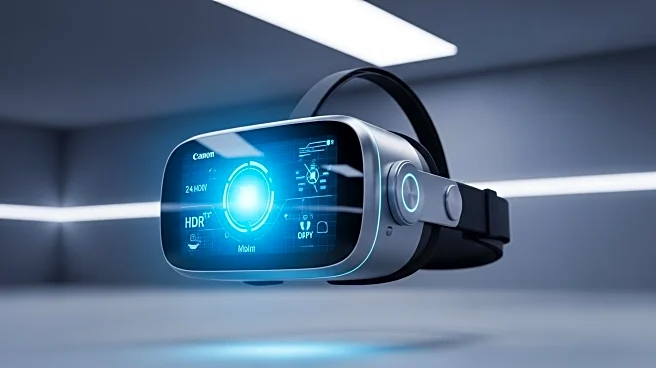What's Happening?
Meta CEO Mark Zuckerberg recently described the company's augmented reality (AR) product as a 'time machine to the future,' a phrase that has sparked debate among industry watchers. This comment coincides with Meta's announcement of new smart glasses, which are part of a $60 billion investment in AR technology. Despite selling 2 million Ray-Ban-branded smart glasses, the company faces mixed sales numbers and concerns over safety, privacy, and pricing. Critics argue that the phrase is more of a sales tactic than a technical promise, raising questions about the safety and features of these AR products.
Why It's Important?
The significance of Zuckerberg's comment lies in its potential impact on consumer perceptions and regulatory scrutiny of AR technology. While supporters believe the phrase captures the emotional appeal of spatial computing, skeptics are concerned about child safety and data collection issues associated with AR platforms. This debate could influence product launches and consumer adoption rates. Meta's substantial investment in AR indicates a commitment to advancing the technology, but the modest consumer demand suggests challenges in achieving widespread adoption.
What's Next?
As Meta continues to push its AR products, the company may face increased scrutiny from regulators and consumers demanding clearer product promises and safety assurances. Developers might receive backing from major investors, while cautious consumers could wait for more affordable and safer models. The marketing rhetoric surrounding AR could either slow down purchasing decisions or accelerate app innovation, depending on how the safety concerns are addressed.
Beyond the Headlines
The ethical implications of AR technology, particularly regarding privacy and data collection, are likely to become more prominent as the technology evolves. The cultural impact of AR, including its potential to change how people interact with digital environments, could lead to long-term shifts in consumer behavior and expectations. As AR becomes more integrated into daily life, the balance between innovation and regulation will be crucial in shaping its future.









